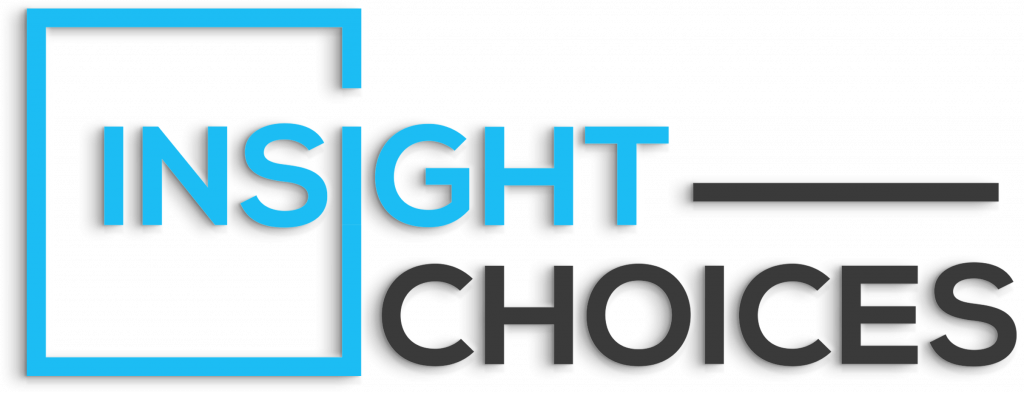Adult Attention Deficit Hyperactivity Disorder (ADHD) can significantly impair an individual’s ability to maintain focus, retain information, and regulate impulses. Without appropriate treatment, individuals with ADHD may experience persistent difficulties in both personal and professional aspects of life.
Adults with untreated ADHD often encounter challenges related to concentration, impulsivity, and emotional regulation. These difficulties can contribute to frustration, low self-esteem, and irritability. Over time, unmanaged symptoms may lead to an increased risk of developing co-occurring mental health conditions, including depression, anxiety, and mood disorders.
However, Adult Attention Deficit Hyperactivity Disorder is highly treatable. Effective management strategies, which may include behavioral therapy, lifestyle modifications, and, in some cases, medication, can lead to significant improvements in focus, motivation, communication, and overall well-being.
Understanding the consequences of untreated ADHD is essential in recognizing the value of seeking appropriate care. The following sections will explore these challenges in greater detail and highlight the benefits of timely and comprehensive treatment.
What is Adult ADHD?
Adult Attention Deficit Hyperactivity Disorder (ADHD) is a neurological condition that affects attention, impulse control, and activity levels. Individuals may struggle with focus, act impulsively, or experience restlessness.
ADHD begins in childhood. Some individuals are diagnosed early, while others recognize their symptoms later in life. While some children outgrow the condition, many continue to experience adult ADHD symptoms as adults.
ADHD can be effectively managed. Treatment plans, developed with healthcare experts, may include behavioral therapy, medication, and lifestyle adjustments to improve daily functioning.
Why Adult ADHD is Often Missed
Adult Attention-Deficit/Hyperactivity Disorder (ADHD) is frequently overlooked, as its presentation differs from that seen in children. While ADHD is commonly associated with hyperactivity, this symptom is more pronounced in childhood and often diminishes in adulthood. In adults, hyperactivity may manifest as inner restlessness or difficulty maintaining focus rather than overt physical activity.
Inattention tends to persist into adulthood, making ADHD more challenging to identify. Additionally, its symptoms often overlap with those of other mental health conditions, such as depression and anxiety. For example, difficulties with concentration—a hallmark of ADHD—are also common in individuals experiencing depression.
Many adults with ADHD develop coping mechanisms that mask their symptoms. High levels of intelligence, professional success, or structured routines may further obscure the condition, leading to delayed or missed diagnoses. Recognizing these subtle signs is essential for ensuring proper evaluation and treatment.
Symptoms of Adult ADHD
Adult ADHD symptoms resemble those seen in childhood but may present differently due to adult responsibilities. For example, difficulties may arise in workplace settings rather than in school.
A healthcare expert will determine both the subtype and severity, classified as:
- Mild: Symptoms meet diagnostic criteria but cause minimal disruption.
- Moderate: Symptoms noticeably interfere with work or social life.
- Severe: Symptoms significantly impact daily functioning, including job stability and relationships.
Inattention Symptoms
To be diagnosed with the inattentive subtype, at least six of the following symptoms must persist for over six months:
- Frequent careless mistakes due to inattention, affecting work or academics
- Difficulty maintaining focus during conversations, meetings, or reading
- Trouble listening, appearing distracted or lost in thought
- Struggles with task completion, often abandoning projects midway
- Disorganization, trouble prioritizing, and difficulty meeting deadlines
- Avoidance of tedious or repetitive tasks, such as chores or paperwork
- Frequently losing or misplacing essential items (e.g., keys, phone)
- Easily distracted by external stimuli or internal thoughts
- Forgetfulness in daily routines, such as missing appointments or bills
Hyperactivity/Impulsivity Symptoms
To be diagnosed with the hyperactive/impulsive subtype, at least six of the following symptoms must persist for six months:
- Frequent fidgeting, such as tapping feet or playing with objects
- Difficulty staying seated when expected
- Restlessness, often feeling uncomfortable being still
- Trouble engaging in quiet activities, even during leisure time
- Consistently high activity level, appearing constantly busy or rushed
- Excessive talking, over-explaining, or impulsive speech
- Difficulty maintaining conversational boundaries, frequently interrupting others
- Struggles with patience, such as difficulty waiting in line
- Frequent intrusion into conversations or activities without realizing social boundaries
Combined Symptoms
The combined subtype is diagnosed when an individual exhibits at least six symptoms from both the inattention and hyperactivity/impulsivity categories.
A healthcare provider will assess symptom severity and develop an appropriate treatment plan.
Diagnosing Adult ADHD
There is no single test to diagnose ADHD. If you suspect you have ADHD, consult a psychiatrist or a healthcare professional experienced in diagnosing and treating the condition.
The diagnostic process may involve:
- A physical examination to rule out other medical conditions
- Blood tests to check for underlying health issues
- Psychological assessments to evaluate cognitive and emotional functioning
- A review of medical and developmental history
While there is no universally agreed-upon age for diagnosing ADHD, experts confirm that the condition does not develop suddenly in adulthood. Therefore, a healthcare provider will assess childhood symptoms by:
- Reviewing school records for signs of behavioral difficulties, attention problems, or underperformance
- Interviewing parents or caregivers about early-life symptoms
- Investigating family history, as ADHD often has a genetic component
A comprehensive evaluation helps determine an accurate diagnosis and appropriate treatment plan.
Treatment Options for Adult ADHD
A comprehensive treatment plan for adult Attention Deficit Hyperactivity Disorder may include medication, therapy, education, and family support. These approaches can help individuals develop effective coping strategies, improve daily functioning, and enhance overall well-being.
Comprehensive Evaluation
A thorough medical assessment is essential, as ADHD often coexists with other conditions such as anxiety, mood disorders, obsessive-compulsive disorder (OCD), learning disabilities, or substance use disorders. Identifying these factors allows for a more personalized treatment approach.
Therapy and Behavioral Interventions
Several therapeutic approaches can complement medication ADHD treatment for adults:
- Cognitive Behavioral Therapy (CBT): Helps improve self-esteem and develop coping skills.
- Stress Management and Relaxation Training: Techniques such as mindfulness and deep breathing can reduce anxiety and improve focus.
- Life Coaching: Guides goal-setting, organization, and time management.
- Job Coaching or Mentoring: Supports workplace success by enhancing relationships and job performance.
- Family Education and Therapy: Helps loved ones understand ADHD and develop strategies to reduce its impact on daily life.
Lifestyle Modifications and Alternative Approaches
While research on alternative treatments for ADHD is limited, mindfulness meditation has shown promise in improving mood and attention. Techniques such as guided imagery and deep breathing may help individuals manage stress and enhance concentration.
Before pursuing alternative treatments, it is essential to consult a healthcare professional to evaluate the potential benefits and risks within an individualized treatment plan.
Strategies for Managing Adult ADHD
Managing ADHD involves a combination of medication, therapy, lifestyle adjustments, and coping strategies tailored to individual needs. Healthcare providers can help develop a structured plan to improve daily functioning. Effective management strategies include:
- Adhering to Medication Guidelines – Take prescribed ADHD medications precisely as directed to maximize their benefits. Proper use of stimulants also reduces the risk of dependence or misuse.
- Developing Personalized Coping Strategies—ADHD symptoms vary among individuals, so effective coping mechanisms also vary. Identify and incorporate strategies that work best for your lifestyle to enhance productivity and daily functioning.
- Utilizing Technology for Support – Digital tools, such as smartphone apps for task management, reminders, and time tracking, can help improve organization and focus. Online communities can also provide valuable resources, support, and shared experiences with others managing ADHD.
When to Seek Professional Help
It is essential to follow your healthcare provider’s recommendations regarding regular appointments, particularly if you are taking medication or receiving other forms of treatment for ADHD. If you are prescribed stimulant medications, both state and national regulations may require periodic visits to your provider for continued prescription. Your healthcare provider will inform you about the necessary frequency of these visits and help establish an appropriate schedule.
Conclusion
ADHD is a chronic condition that typically involves persistent challenges with inattention, impulsivity, and sometimes hyperactivity. These symptoms can continue into adulthood, affecting various aspects of life, including work, relationships, and daily functioning.
However, with the right ADHD treatment for adults plan, including medication, therapy, and personalized lifestyle strategies, it is possible to manage these symptoms effectively. These approaches not only help minimize the negative impacts of ADHD but also enable individuals to leverage their unique strengths and enhance their quality of life.
For those seeking a comprehensive and holistic approach to managing ADHD, Insight Choices offers expert support tailored to your specific needs. Through a combination of professional guidance and practical strategies, we can help you navigate the challenges of ADHD while fostering personal growth and success.
FAQs:
What are the main symptoms of Adult ADHD?
Adult ADHD symptoms include inattention (e.g., difficulty focusing, forgetfulness), impulsivity (e.g., interrupting others, making hasty decisions), and sometimes hyperactivity (e.g., restlessness, fidgeting).
How is Adult ADHD diagnosed?
Diagnosis involves a comprehensive evaluation by a healthcare provider, including medical history, behavioral assessments, and sometimes input from family or past school records. There is no single test for ADHD.
Can Adult ADHD be mistaken for other conditions?
Yes, Adult ADHD can be mistaken for conditions like depression, anxiety, or sleep disorders due to overlapping symptoms such as concentration difficulties and irritability.
When should I seek help for Adult ADHD?
Seek help if you notice persistent symptoms affecting your daily life or if you struggle with tasks such as maintaining focus, organizing, or managing impulsive behavior. Regular follow-up is essential if you’re on medication.

Dr. Chang is a highly respected psychiatrist with extensive experience serving patients in the greater Los Angeles area. With a distinguished background in psychiatry, he has dedicated his career to advancing mental health care through both clinical practice and academic contributions.

